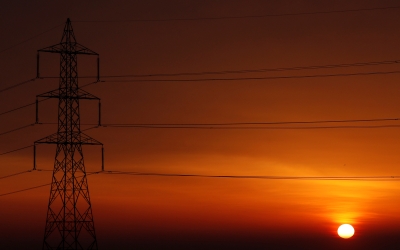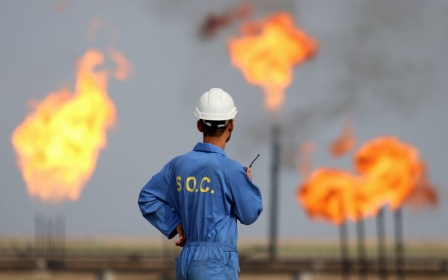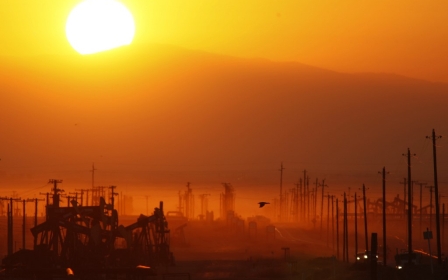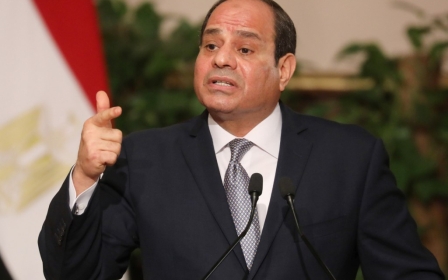Egypt expands oil refining capacity as it aims for self-sufficiency
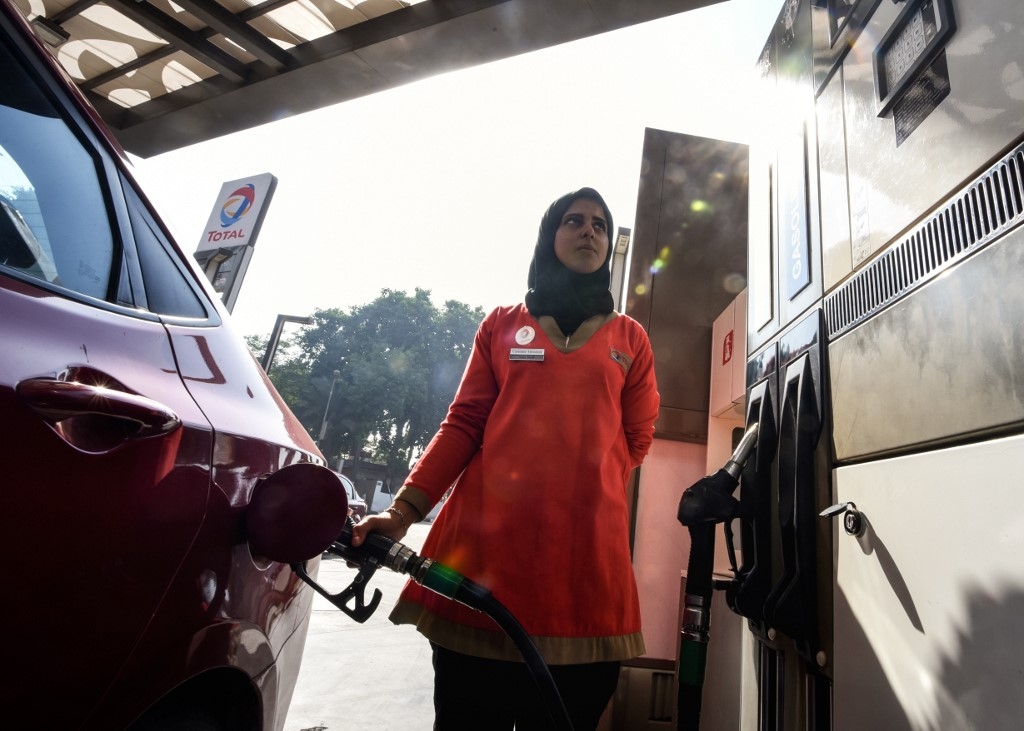
Egypt is moving down the road towards its goal of achieving self-sufficiency in petroleum production and suspending imports by 2023, with a newly established refinery able to supply the south of the country with its crude oil needs.
"We have formulated a plan to achieve self-sufficiency in the production of gasoline and diesel," Hamdi Abdel Aziz, the official spokesperson of the Ministry of Petroleum, told Middle East Eye. "We are accelerating our pace so that we can fulfil this strategic goal."
The newest facility, in the southern province of Asyut, will produce 800,000 tons of premium gasoline every year.
'The new oil refineries save a lot of foreign currency that can be spent on the importation of petroleum products from other countries'
- Ramadan Abul Ela, oil and gas expert
It is a $450m investment that will provide the southern Egyptian provinces with this fuel, instead of it being transported from refineries in Cairo, the Suez Canal city of Suez, or the northern coastal city of Alexandria.
Egypt has been trying to bring down petroleum imports since 2016, and its strategy is apparently paying off.
The populous nation imported 10 million tons of petroleum products in 2016, paying $4.5bn to do so. Imports have gone down in subsequent years. In 2020, they fell to 3.5 million tons, costing the national budget $1.5bn.
The government hopes the imports will stop totally by 2023.
Three major projects
Large-scale importing of petroleum has placed a heavy burden on the budget of a country that is struggling economically.
This is why bringing down the imports is a pressing issue for the Egyptian government, which works to do this by increasing the national refining capacity.
Egypt has invested over $7bn since 2016 to make its petroleum facilities process more oil. The refinery in Asyut is one of three major projects implemented in the past four years.
In September 2020, Egyptian President Abdel Fattah el-Sisi opened a major oil refinery in northwestern Cairo.
A $3.4bn investment, the facility will produce 4.7 million tons of gasoline, diesel, and jet fuel every year. It will increase diesel production by 30 percent and gasoline production by 15 percent, according to the Ministry of Petroleum.
By increasing the amounts of petroleum products produced here, specialists say, these projects save a lot of money.
"The new oil refineries save a lot of foreign currency that can be spent on the importation of petroleum products from other countries," oil and gas expert Ramadan Abul Ela told MEE.
Surge in exploration deals
Egypt is also working to attract major international companies to explore oil in its territory.
From March to October 2020, the Ministry of Petroleum signed 14 exploration agreements with international companies.
In the past six years, Egyptian authorities signed a total 86 exploration deals worth $15bn with international companies.
About 60 international companies are exploring oil in more than 164 concession areas across Egypt now, according to the Ministry of Petroleum.
"The deals we sign with foreign and local companies intensify exploration activities," Abdel Aziz said. "This reflects positively on discoveries."
The agreements are opening the door for more finds and consequently more production. Egypt's daily crude oil production reached 650,000 barrels in 2019, a 7 percent increase from 2018.
Less dependence on petroleum
Nevertheless, Egypt's growing ability to reduce petroleum imports and achieve self-sufficiency is less about growing petroleum production and more about decreasing dependence on this production.
'Growing natural gas production opens the door for more dependence on this gas and less dependence on petroleum'
- Osama Kamal, former petroleum minister
Egypt's growing natural gas production makes it less dependent on oil, specialists said.
"Growing natural gas production opens the door for more dependence on this gas and less dependence on petroleum," Osama Kamal, Egypt's former petroleum minister, told MEE.
With a daily natural gas production of 7.2bn cubic feet, Egypt has enough gas for its daily consumption of 5.7bn cubic feet. It also has enough gas for exports for the first time in almost a decade.
The discovery of a gigantic gas field off Egypt's Mediterranean coast in 2015 changed the country's fortunes. The Zohr field, which was discovered by Italian state-owned oil company Eni, now produces 3bn cubic feet of gas every day.
Production from the field helped Egypt stop gas imports for local consumption in 2018.
The authorities in Cairo are trying to tap into this growing gas production to reduce dependence on petroleum products.
One of the measures they are taking in this regard is to convert hundreds of thousands of gasoline and diesel-powered vehicles to run on natural gas.
In 2020, 45,000 gasoline and diesel-powered vehicles were converted to gas. Tens of thousands of other vehicles will be converted in the coming months and years, the government says.
Energy hub
Egypt has a plan to become an energy hub. This, specialists say, will bring about a complete transformation in its relations with oil and gas producing and consuming countries in the region.
"The energy hub goal will serve Egypt's economic and political relations with other countries best," Abul Ela said. "It will increase Egypt's political and economic weight."
Egypt is increasing its oil and gas processing capacity to serve this objective. The new oil refineries are raising the number of operating refineries to 12. Egypt also has two major gas liquefaction plants.
Egypt's plan is to collect oil and gas produced in the region, process them at local facilities, and send petroleum products and liquefied gas to the international market.
In January 2019, Egypt - along with six other states - launched the East Mediterranean Gas Forum to create a framework for cooperation between gas producers and consumers in the region.
In September 2020, the forum was elevated to being a regional organisation.
The organisation will work to best exploit gas resources in the East Mediterranean region, reduce investment needs and integrate regional economies.
Challenges
However, the drop in demand for gas as a result of the Covid-19-induced economic recession is bringing natural gas prices down on the international market.
This makes it difficult for governments to attract investments to their gas sector or move ahead with gas exploration projects. Egypt is no exception. While carbon emissions from burning natural gas are much lower than from coal or oil, it is still a fossil fuel, and a driver of the worsening climate crisis.
In early 2020, some of the companies investing in gas exploration in Egypt pulled out of the market, highlighting the difficulties exploration projects were facing.
Ongoing tensions in the Eastern Mediterranean region, including unrest in Libya and regional rivalries in it, as well as conflicts between Greece and Turkey, will slow down Egypt's realisation of its energy hub dream, experts said.
Apart from scaring new investors, the same tensions hamper the implementation of projects necessary for the fulfilment of the energy hub goal, the same experts added.
"These tensions scare international companies away from exploring minerals in the region," Kamal said. "They also slow down our ability to fulfil our goal of becoming an energy hub."
Middle East Eye propose une couverture et une analyse indépendantes et incomparables du Moyen-Orient, de l’Afrique du Nord et d’autres régions du monde. Pour en savoir plus sur la reprise de ce contenu et les frais qui s’appliquent, veuillez remplir ce formulaire [en anglais]. Pour en savoir plus sur MEE, cliquez ici [en anglais].



